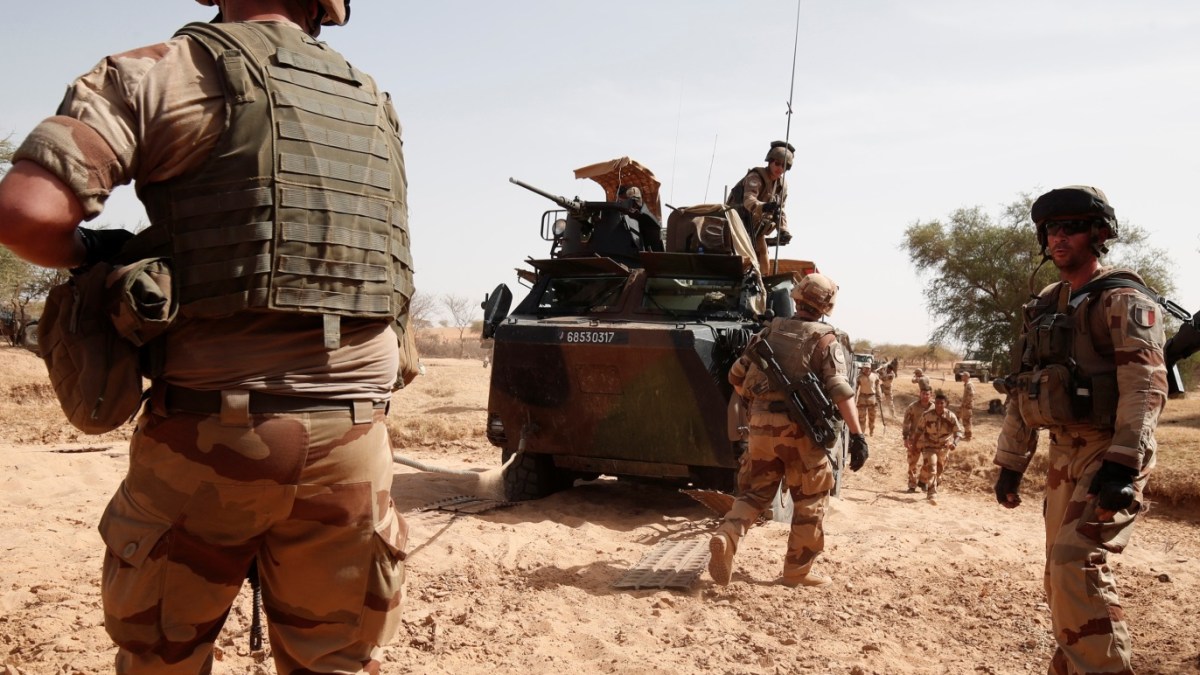The French army said that it would keep about 3,000 soldiers in the Sahel, days after completing its withdrawal from Mali, which accused the French "Barkhane" force of committing "aggressive acts" on its soil.
The French Chief of Staff said that "in the framework of the reorganization of Operation Barkhane outside Mali, about 3,000 soldiers will remain in the Sahel region, and they will perform their tasks from bases in Niger and Chad, along with our African partners: a combat military partnership, an operational military partnership and logistical operations."
"The end of the French military presence in Operation Barkhane in Mali does not mark the end of Operation Barkhane. The transformation of Operation Barkhane is much deeper than this withdrawal from Mali," said Colonel Pierre Goodyear, a spokesman for the Joint Chiefs of Staff.
On Monday, the French Army announced the end of its presence in Mali, against the backdrop of tense relations between Paris and the ruling military junta in Bamako.
The French General Staff reported that at 11:00 UTC the last battalion of the Barkhane force on Malian territory left;
Thus, France ended the withdrawal of its forces after the emergence of popular demonstrations calling for the speedy departure of these forces.
Goodyear stressed that "this matter falls within the framework of a new approach to partnership with African countries that have requested it."
It is noteworthy that the "Barkhane" force numbered 5,500 soldiers at the height of its deployment in the Sahel region.
The military junta in Mali called on the French army to leave the country permanently last Monday, after its presence there for 9 and a half years.
The French presidency said last Monday that "France remains committed in the Sahel region," as well as in "the Gulf of Guinea and in the Lake Chad region, with all partners committed to stability and the fight against terrorism."
According to the French Chief of Staff, Paris also has - in addition to the "Barkhane" force - 900 soldiers deployed in Ivory Coast, 350 in Senegal, and 400 in Gabon.
Mali said on Wednesday that its foreign minister, Abdoulaye Diop, sent a letter to the UN Security Council requesting an end to what he said were French "aggressive actions", in particular "the collection of intelligence information for terrorist groups operating in the Sahel and the dumping of weapons and ammunition to them."
In response to that letter, the commander of the Barkhane force, General Bruno Baratz, said that this kind of accusation is "a bit insulting (...) to the memory of our 59 colleagues who fell for Mali and to all the Malians who fought on our side", as well as to the elements of the United Nations Mission in Mali ( Minosma).
France maintained its political and military influence in Mali over the past decades, but the situation witnessed a radical change in Bamako with the arrival of the current military junta to power in August 2020.
The new rulers of Mali accuse France of interfering in their country's affairs and inciting African countries to besiege them in response to the overthrow of a government considered pro-Paris.

